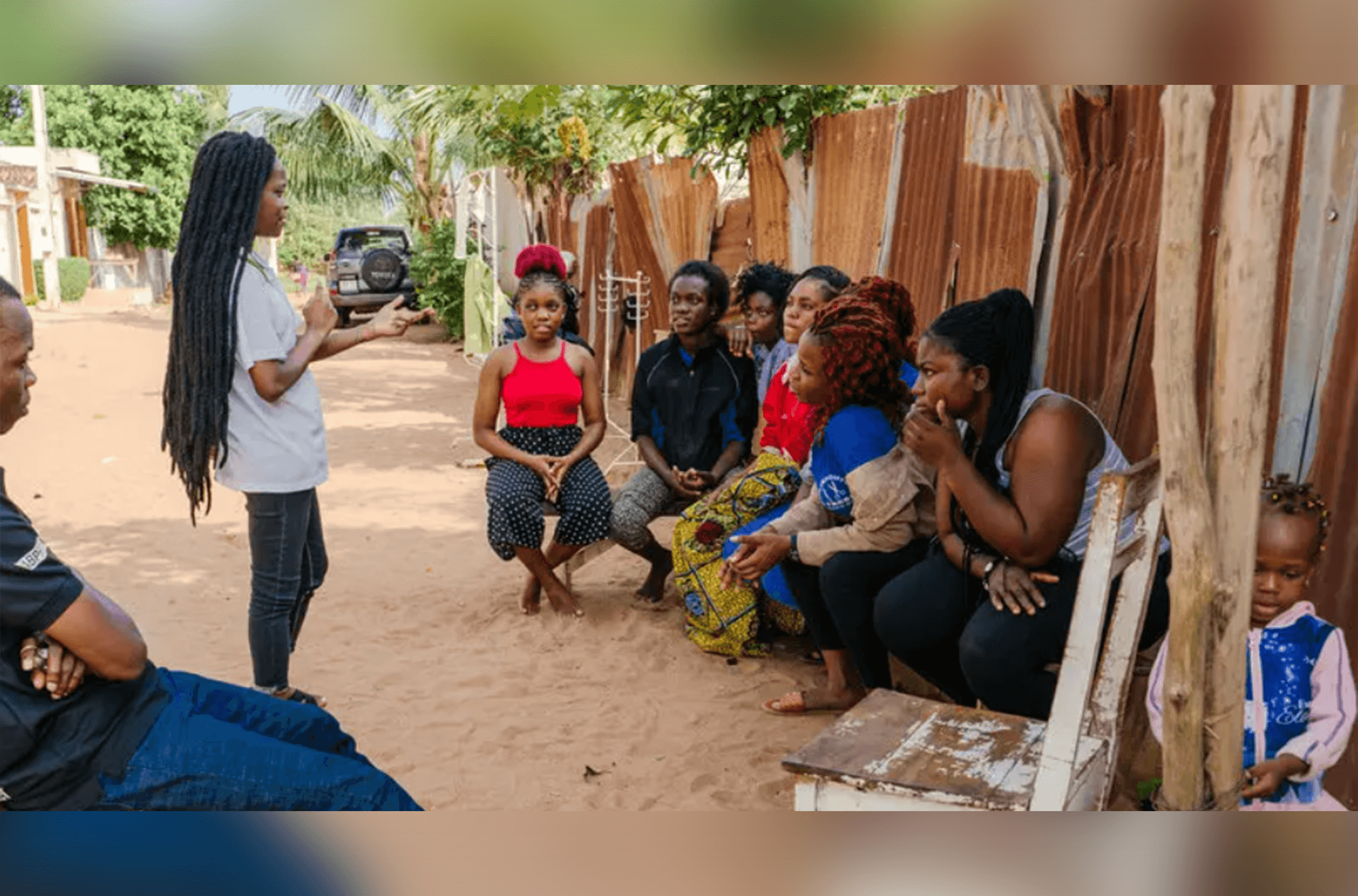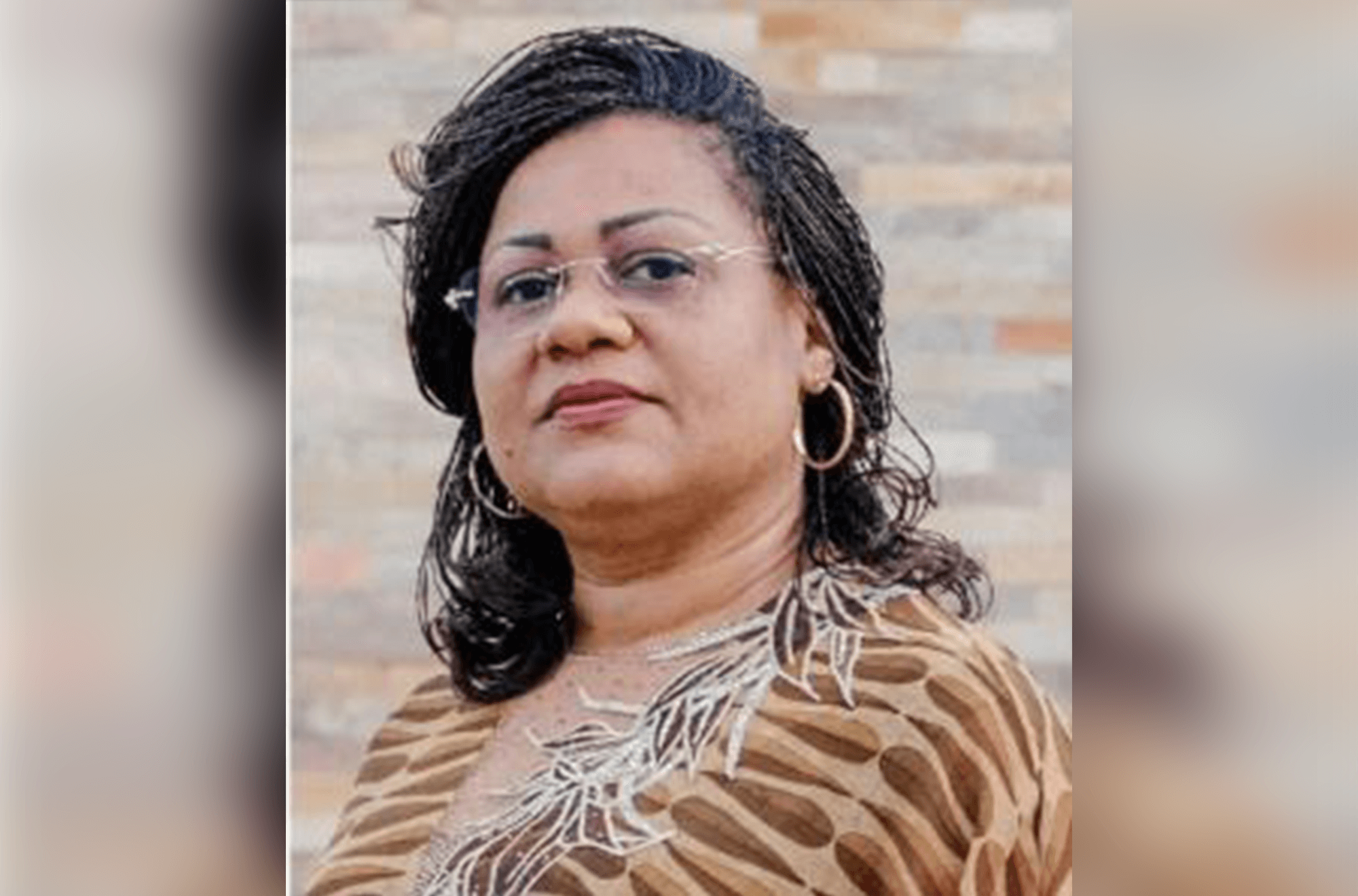
Training session by a member of a local youth association that promotes family planning
In October 2021, Benin adopted one of the continent’s most liberal laws on abortion after hearing testimony from gynaecologists about women dying from illegal abortions.

When lawmakers in Benin met last year to consider whether to legalise abortion, they heard shocking testimony from Dr Véronique Tognifode (pictured above), the country’s Minister of Social Affairs, about what she had seen during her years working as a gynaecologist. She recounted how she and her peers had struggled to save women who had tried to end their pregnancies by ingesting dubious pills or bleach, inserting sharp objects into their bodies or getting illegal abortions from the dangerous hacks known locally as “mechanics.”
“How many more bowels coming out of uteruses do we need?” she asked.
The death toll was unacceptably high: one in five maternal deaths in Benin resulted from unsafe abortions, according to the government — more than twice the average on the African continent — still the most unsafe region in the world to terminate a pregnancy. “Young women and girls are getting abortions one way or another, and those ways are unthinkable,” said Dr Tognifode, one of three gynaecologists serving as senior officials in Benin’s government. “We can’t live with what we see in hospitals.”
Legislators voted in October 2021 to decriminalise abortion under most circumstances, allowing it when a pregnancy is likely to cause “material, educational, professional or moral distress”. Previously, abortion was allowed only in cases of rape, incest or fetal anomaly, or if the woman’s life was at risk. A year after the law passed, some clinics have seen more women seeking abortions but fewer needing treatment for botched ones.
One lawmaker, Orden Alladatin, said in an interview that legislators had been shown images so “atrocious” that he was persuaded to support the bill.
After hours of debate, the Assembly voted unanimously in favour of the bill. Opponents had either left the building or claimed to have changed their minds. The vote count was never made public.
Many saw the support of President Patrice Talon as consistent with his record of passing other women’s rights measures: strengthening sentences for sexual assault; criminalising sexual contact between university professors and the students they teach; allowing mothers to give their family name to their children. Others described him as an autocrat who allowed legislators no choice in the vote.
The seven young women in the photo above, of a recent FP training session, said this was the first they had heard of the law being changed last year.
Abortion is also under discussion elsewhere. Lawmakers in Liberia debated a bill in June that would legalize abortions in most circumstances, but the outcome is said to be “unclear”. The government of Sierra Leone, which has one of the world’s highest rates of maternal mortality, has also vowed to decriminalise abortions, though not for the first time. The last time was in 2016, when the president refused to sign a law that was passed by the parliament twice.
SOURCE: New York Times, by Elian Peltier, with Flore Nobimé. 13 November 2022. [Shared by a NY Times subscriber] PHOTOS: Carmen Abd Ali for New York Times
RE SIERRA LEONE, SEE: https://www.safeabortionwomensright.org/news/sierra-leone-safe-abortion-act-blocked-by-president-bai-koroma-again/; 25 April 2016



